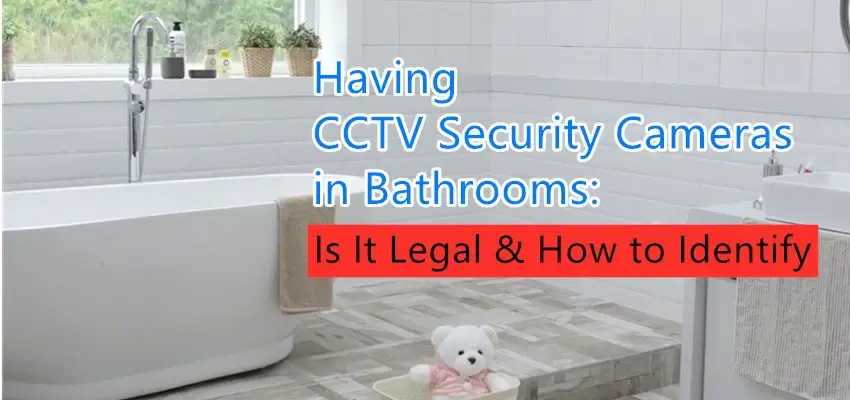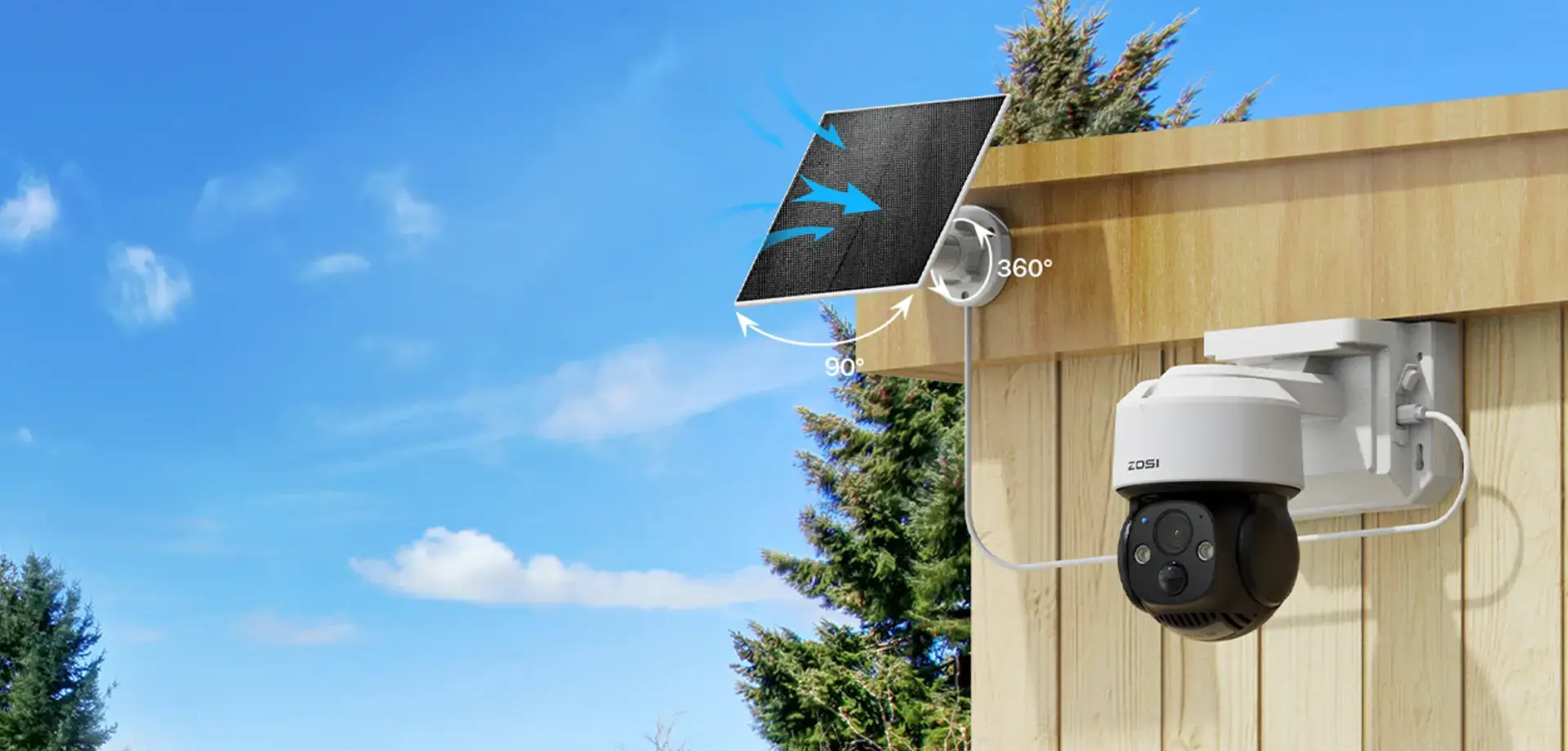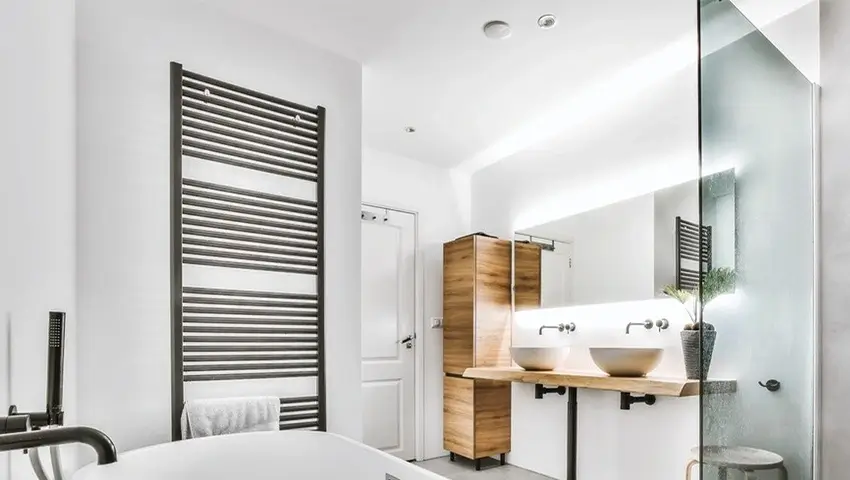Have you ever put mind CCTV cameras in bathrooms? At a time, it can be quite traumatizing if you find one. Besides, it can be a huge intrusion of privacy.
In recent years, the use of closed-circuit television (CCTV) security cameras has become increasingly popular in public and private spaces. However, the use of CCTV in certain areas, such as bathrooms, raises questions about the legality and privacy concerns.
So, are there cameras in public bathrooms? Is it legal to put security cameras in bathrooms? Can employers install CCTV cameras in employees’ restrooms? How to know if a public bathroom has a camera installed?
In this article, we shall discuss the legality of the case and understand what it involves when having security cameras in bathrooms, and what you need to know if it is legal or illegal.
Contents
Is It Legal to Put CCTV Cameras in Bathrooms?
In general, it is not legal to have CCTV cameras in bathrooms, as they are considered private spaces where people have a reasonable expectation of privacy. The use of CCTV cameras in bathrooms can be considered a violation of privacy and could lead to legal consequences.
However, there are some exceptions to this rule. For example, in certain cases, CCTV cameras may be installed in public bathrooms for security reasons, such as to deter vandalism or theft. In these cases, the cameras must be clearly visible and signs must be posted to inform people that they are being recorded.
Mind that in states like Florida and Michigan, it is unlawful to record conversations without the consent of all parties. So, putting a security camera in public restrooms that enables audio recording to eavesdrop on someone’s private conversation is also illegal.
If you want to know the legality for parents to install video cameras in children’s rooms.
How to Identify Hidden Cameras in Bathrooms: 3 Practical Solutions
It is important to be able to identify CCTV cameras in bathrooms in order to protect your privacy and avoid potential legal issues. Here are some tips for identifying CCTV cameras in bathrooms:
1. Look for signs: As mentioned earlier, if CCTV cameras are installed in public bathrooms, signs must be posted to inform people that they are being recorded. Look for signs near the entrance of the bathroom or inside the bathroom itself.
2. Check the mirrors: Establish a regular mirror where people hide a security camera for recording. Put your fingertip on the mirror. A reflection with a gap between your fingers will be seen, meaning it is a real mirror.

In case there is no gap, then it is a one-way mirror. Typically, it means it is a hidden security camera.
3. Look for cameras: CCTV cameras are usually small and discreet. They may also be disguised as other objects, such as smoke detectors or air fresheners. Examine the suspicious items inside the bathrooms, like wall hooks, strange screws, power outlets, and light fixtures. In addition to this, products like light bulbs, and USB chargers may exist and will be found around the bathroom areas. Besides, these items come along with security cameras.
4. Use a detector: There are devices available that can detect the presence of hidden cameras, including those disguised as other objects. These devices use radio frequency signals to locate the camera and alert you to its presence.
Have a smartphone with an app to scan devices. The device is usually attached to the property network and can detect WI-FI cameras.
First, take your smartphone and make a call while in the bathroom. Make movements and standstill. You will hear certain distractions. Amicably, use your downloaded detector app and check any hidden camera. Put the light off, and you will be to see one.
Takeaway: To find more effective ways to identify cameras in bathrooms and hotel rooms.
5. Check for wires: If you suspect that there may be a hidden camera in a bathroom, check for wires or other signs of electrical equipment. Hidden cameras require power, so there may be wires running from the camera to an electrical source.
What to Do If You Find Security Cameras in Bathrooms: Can’t-Miss Tips Here
When you find hidden security cameras in bathrooms, changing rooms, and other intimate places, do not touch the video cameras with your bare hands, to avoid possible contamination of key evidence.
Instead, you may collect concrete proof and take legal action to defend your privacy.
Note that the following tips don’t apply to the cases when security cameras are set up and operated in bathrooms within the laws (with proper notices & no intimate activity is filmed).
Collect amicable and credible evidence
- Take pictures and record videos: Such materials will be used as evidence for legal action.
- Use video surveillance to local law: Read local laws regarding the legality of CCCTV cameras in bathrooms. Always consult a lawyer in case you are in doubt of anything.
- Leave the premises: Once you feel you are in danger, vacate the premises immediately.
- Unplug the device: If you feel uncomfortable, remove the camera.
- Confront the business owner: If no notice was there, take legal action. Maybe the owner installed the camera secretly.
Reasons Why you should Hide Security Camera in Bathroom
There is a need to hide security cameras in the bathroom for the following reasons:
- To track suspicious visitors: Sometimes you may have visitors you can’t trust. The visitors often tend to go to the bathroom to hide. With a security camera around your bathroom, you can view videos and get to know any issues.
- To monitor your house managers: Once you hire a person to take care of your children and the entire household, you need a security camera. Furthermore, you cannot trust your nannies fully. Typically, you cannot fully trust your nannies. You will monitor how they treat your children in the bathroom area. Besides, the security of your child should come first.
- For safety precautions in the bathroom: Your kids may be playing around the bathtub—hidden security cameras aid in monitoring them. You will be able to know in case of any item which is subject to cause accidents.
- Spotting a robber: Hidden cameras in bathrooms will enable you to spot an intruder in the house. Occasionally, house intruders use the bathroom windows to access the house.
- Employees’ bathrooms: Employees tend to hide and steal office items and hide in the bathroom. Moreover, they may use it, but you will track them with a camera.
What to consider when installing Security Cameras in Bathrooms
Installing a security camera in the bathroom is not an easy decision to make. Ensure you do not install the cameras in places the law does not allow. For example, areas like changing rooms, bedrooms, restrooms, and bathrooms. You will not be happy if you find a camera in any way.
On the other hand, before you install, always notice businesses. Besides, always consult a lawyer to avoid any infringement of the law.
The ZOSI 1NC-291 is a battery-powered WiFi camera that is compact, IP66 waterproof, and can be set up in under a minute. Turn on motion detection, once someone enters the bathroom, there will be a sound and light alarm.
4MP Wireless Battery Powered PT Secrity Camera - 1NC-291
- 4MP Super HD
- Long Battery Life
- Customize PIR Alert
- 360° HD View
- Flexible Mounting
- Enhanced Night Vision
Conclusion
The use of CCTV cameras in bathrooms is generally illegal and can be a violation of privacy. However, there are exceptions for public bathrooms used for security purposes, and in these cases, signs must be posted to inform people that they are being recorded. To protect your privacy and avoid potential legal issues, it is important to be able to identify CCTV cameras in bathrooms using the tips mentioned above.





